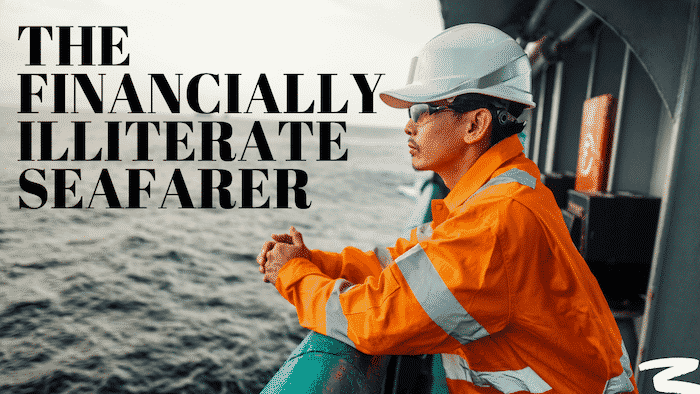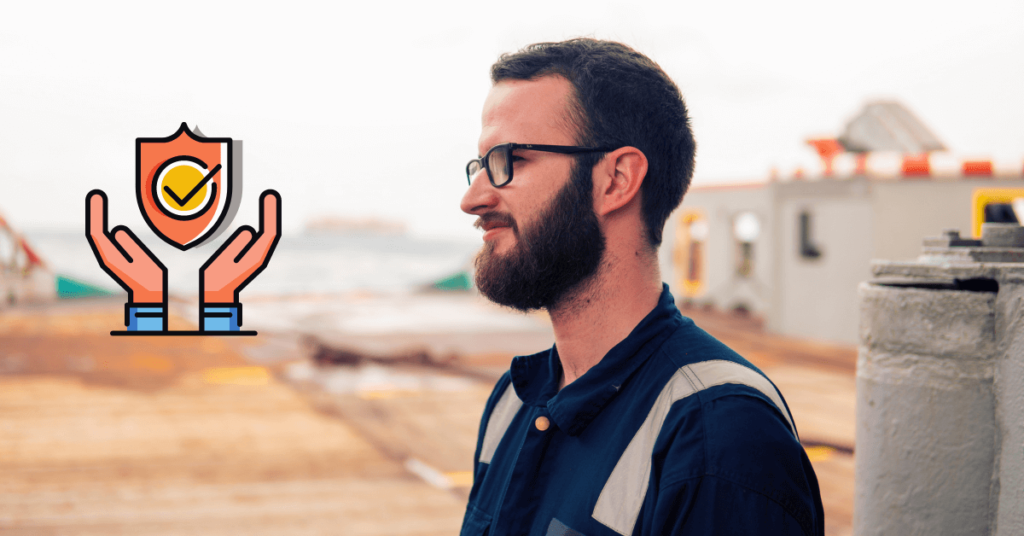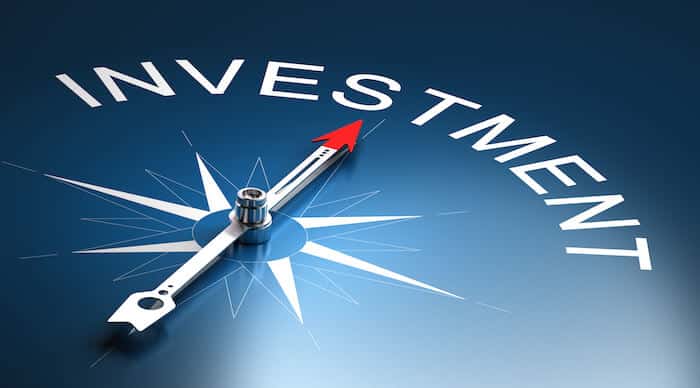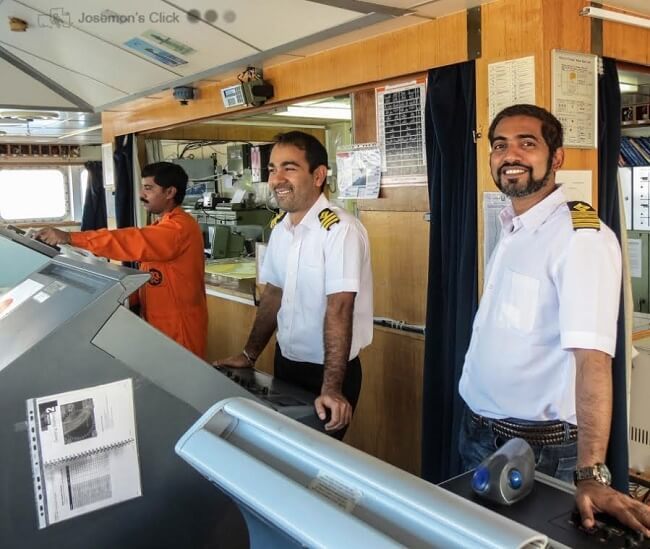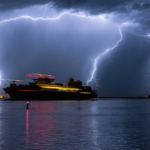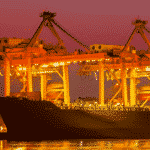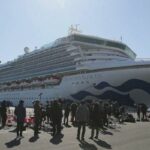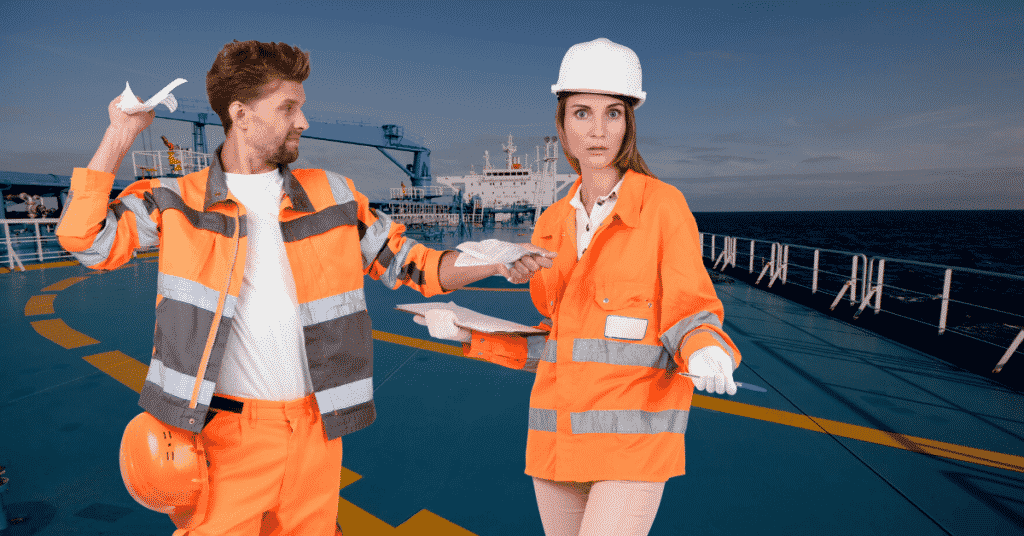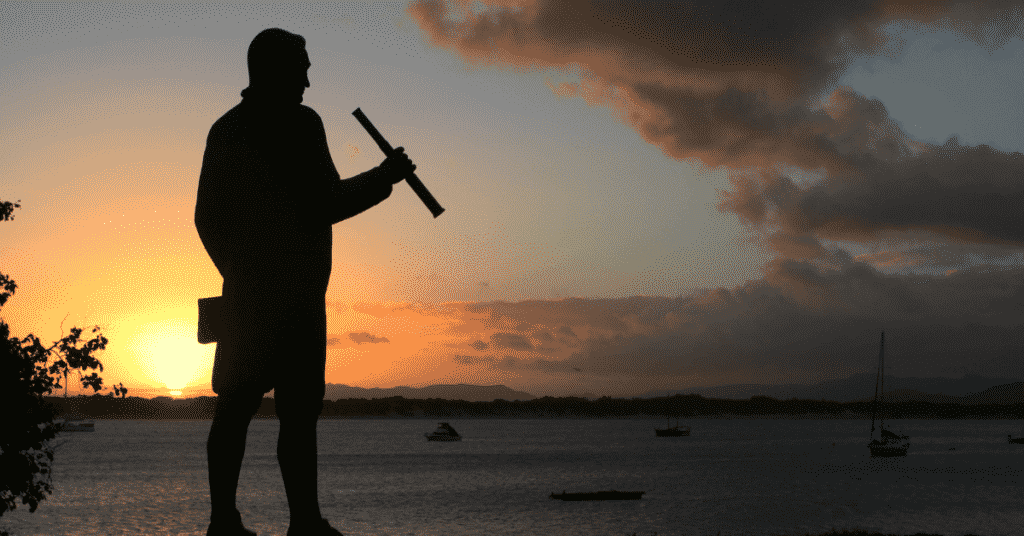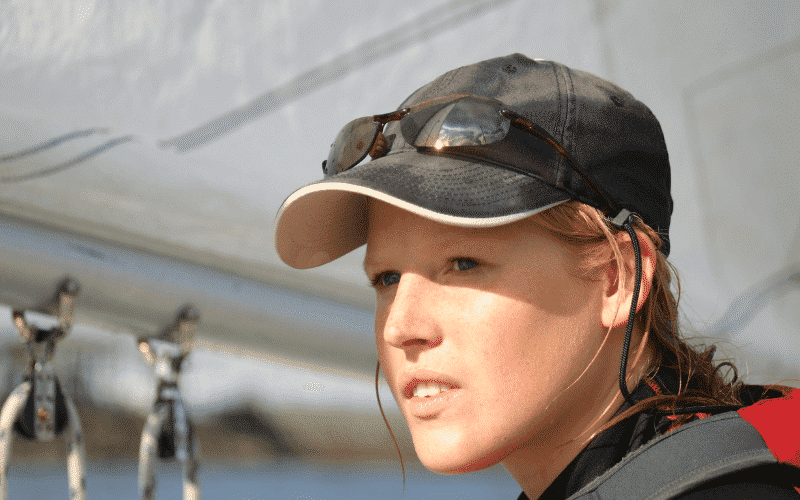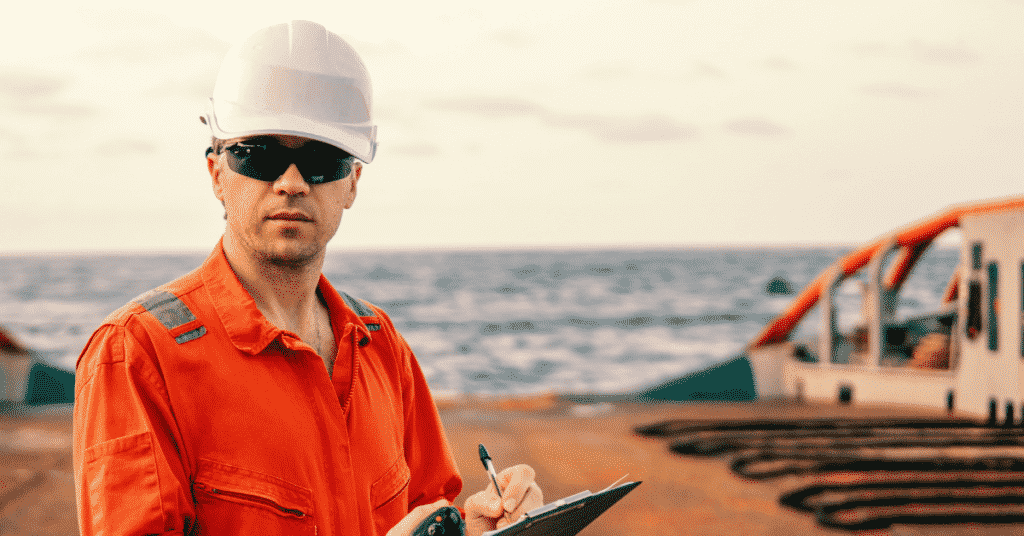The Financially Illiterate Mariner – Are You One Of Them?
During my good old sailing days, the 3 pm coffee breaks used to be my favourite. 30mins of chit-chatting, sipping on coffee, discussing work and complaining more of how bad the internet connection has been!
A great stress buster during a usual hectic day.
One such coffee break, I noticed my Chief Engineer was a little lost, he had not even sipped his coffee that had turned cold lying on the table.
He seemed to be in his own chain of thoughts, least interested in the shore leave story the cadet was telling.
Wondering if he was worried about bunker calculations, I thought to interrupt his chain of thoughts.
Me: Chief, is something bothering you? Are the fuel figures okay for today?
Chief: Did you get your salary today for this month fourth?
Me: Yes, today morning I got an email that salary has been credited in the bank, Company has been doing that very timely I must say. Did you not get it today?
Chief: I also got an email from my bank today which showed the salary credit. Those dollars made my morning. Randomly a thought crossed my head and I decided to calculate how much money I have earned in the last 5 years. I found that I have earned 1 Crore 83 Lacs in the last 5 years, during which I sailed for only 2.5 years; you can say half of the last 5 years I was on vacation.
Me: That’s awesome Chief, then why do you look so worried?
Chief: A few moments after I finished the calculations, I started feeling a little uneasy, my breath got heavier and my left arm started feeling numb. What felt like a cardiac arrest, was luckily not one. But you know how it feels when you realise that you have won the battle but have lost the war. Yes, it felt something like that and that was an eye-opener for me. I have earned 1 Crore 83 Lacs in last 5 years and what I have right now is 8 lacs in bank fixed deposits, some jewellery and few ULIPs which are giving me nothing but negative returns. I am not a lavish spender and the only earning member of the family.
If something happens to me tomorrow, all my family has is one year of finances maximum to survive.
What has gone wrong? Where has all my money vanished?
I am sure many mariners must have or will encounter this question in the future. Most of the merchant navy personals are great at engineering, doing jugaad (Hindi term for “hack”), navigating, living life at seas but are ‘Financially Unlearned’.
We have been taught lots of technical calculations during our engineering days about how a ship works but was never really taught how to manage our finances once we start sailing on those ships.
Mistakes a common mariner makes in his personal financial management
Let us read the mistakes Chief had done during his full journey from 5th engineer to chief engineer.
Mistake 1 – When he signed off as 5th engineer, he had 3.2 lacs in his bank account. For a guy managing only ₹1000 a month back during his engineering days, the amount was enormous. He purchased a new iPhone, lent money to his friends, started going to expensive restaurants & bought new expensive clothes. Never had it occurred to him that he has a year of unemployment ahead where he had to prepare for M.E.O Class IV. A few months later, he was back to square one, hoping that the money he had lent to his friends would come back, but it never did.
Mistake 2 – His father had maintained an Alto but when he signed off after 4th engineer’s sail, suddenly his Dad’s Alto became difficult to steer and brakes became less effective. He picked up a new sedan with power steering and hydraulic brakes.
That car also became flawed once he got promoted to 3rd engineer and within 3 years, he upgraded to an SUV.
Mistake 3 – He had visited his bank to apply for a new credit card. His bank’s relationship manager, to complete their sales targets, asked him to buy two ULIP policies and told him he will gain attractive returns. Not aware of how ULIPs work and blindly trusting his RM, he bought two ULIP policies from his bank of value ₹1 Lac each. This way the bank RM fulfilled his selling target for the bank and earned huge commissions while Chief money got stuck in not so good ULIP for another 5 years.
Mistake 4 – He owned a nice 3 BHK house in a beautiful town but once he became a chief engineer, it was small for his status as he had to show his peers that he earns in US Dollars (Fun Fact “No one cares”). He upgraded that house to a penthouse with 6 rooms and kept paying EMIs for a very long time.
Till this time, whatever he had spent was in policies which did not give the expected ROI & non-profitable assets. This was also draining heavy chunk of his salary every month in terms of maintenance and operations costs. He had saved some money in FDs but those FDs also started vanishing whenever he had to appear for M.E.O exams.
When & Why a seafarer should start investing
Answer to when is The moment you earn a dollar, you should invest a dime (that’s 10%) at least. Start investing when you get your first salary, start with an amount as low as 10% of your monthly income. Thumb rule is to start with 10% of your salary and keep increasing it by 10% every year until it becomes at least 50% of your total monthly income.
Answer to why is All seafarers have a pipe dream of a highly paid job but it isn’t so. Allow me to bring you out of this misconception and introduce you to the actual world.
You all agree that if we must maintain the same lifestyle after retirement, we need to save money from our current earnings.
The average salary of the highest-paid rank on board a dry ship is 8 lakhs per month, but most of us becoming Masters or Chief Engineers sail 6months/year, that makes your effective salary 4 lakhs per month for a full year.
The average expense for a family of four would be ₹75k per month, now you are left with 3.25 lacs in which you have to pay EMI of your expensive car, pay EMI of your 6 BHK Penthouse, pay for maintenance and operation cost of your house, car, etc, plan for family trips, buy the latest gadgets, arrange expensive birthdays or anniversary parties and also account for unfortunate health care expenses.
After these expenses, what is left would go to your savings for retirement and if you wish to lead the same lifestyle after retirement, it definitely won’t be sufficient.
Tell me now, do you feel like we have made the best use of our hard-earned money? Will we be able to spend time with our family and quit sailing by the age of 50 at this rate?
Absolutely not!
One must become financially disciplined for that.
Whenever you are buying an expensive thing, imagine the 60 years old version of you. was buying that expensive thing so important for you that you didn’t even think once, how difficult would it be for me to climb that gangway at the age of 60?
The latest iPhone costs us around 1.2 lacs i.e. 10000/month. (assuming you change it annually). But if we plan to use the same phone for 3 years rather than changing it every year then we save 6666 INR every month. Invest this money in Mutual Fund for 25 years with an annual return of 12% you get a whopping figure of 1.07 crores.
Being financially disciplined will set your course but following that course needs voyage planning and as a seafarer, you know what the basic rule is – Safety First.
Build your Safety Net first
Term Insurance: Life is very unpredictable! Anything can change in just a blink of an eye, even before you know it. In these uncertain times, you always need to have a safety net for your family in your absence. just close your eyes for a moment & imagine not being there for your loved ones anymore! Imagine how will it impact them!
Seems scary?
After the initial mourning and crying, what your family needs is a fund to pay for those liabilities.
Check your bank balance now and think is this fund enough for your family to survive for the next 20 years.
If the answer is no, then get a term insurance plan. Don’t fall for those insurance plus investment plans as one basic rule “never mix investments with insurance”
Health Insurance: If term insurance is your life jacket, then health insurance is that fire extinguisher which is nearest to your cabin.
Hospitalisation can drain a lot of money out of your savings, so on a voyage of financial freedom, you cannot cast off your lines without having good health insurance for you and your family.
Most of the shipping companies provide health insurances, but they last only till you are associated with them.
Down the line, when you will leave shipping, you will be stuck with no health insurance and it will be very difficult to get one then since with age our body starts developing small health problems like diabetes, cholesterol, etc. Thus it is advised to take personal health insurance at least at a young age.
Emergency Funds: You should always have an emergency fund that can be liquidated in 1 to 2 days and should be used in case of engine room fire. This fund is like fixed firefighting system – use it only when you have exhausted all your other options.
Seafarers can find it very intimating to handle finances. When you are on the ship, it becomes very difficult to track financial investments, performances, expenses and new products.
Therefore, it is very important for seafarers to take financial consultation and advise.
Every seafarer, to maintain their financial health, should consult a financial advisor who knows about them and their lifestyle and understands seafarer’s profession.
After all, as the saying goes, A ship is safe at the port, but that’s not what it meant for.
Set your money in the right direction and it will sail to get you the required returns!
Invest well, Invest smart!
Disclaimer: All views expressed in the article are personal opinions of the author
You might also like to read:
- A Guide to Financial Planning For Seafarers
- Importance Of Personal Financial Planning For Seafarers
- 10 Common Financial Mistakes Seafarers Make
- Little Known Facts About Magic Of Savings Seafarers Should Know
- 4 Types Of Investments That Kill Seafarers’ Hard Earned Money
- Financial Planning: Long Term Capital Gain (LTCG) Tax And Life After That
About the Author:
Mayur Agarwal is a BTech graduate from BITS affiliated Tolani Maritime Institute. He started his sailing career in 2015 with Maersk Line and now is a Senior Investment & Insurance Consultant at Mars Millennium Financial Services. Mars Millennium Financial Services, a group company of Millennium Investments, is an Insurance and Investments Consultancy firm founded in 2000. Since then, the company has grown to manage wealth for more than 100 families and corporates. Mayur has experience & expertise in personal finances of seafarers and is currently handling investment portfolios of around 35 seafarers helping them grow their wealth.
For any financial counselling, you may contact him at below details:
+91 7738800825 mayur@marsmillennium.com / marsmillennium.com
Do you have info to share with us ? Suggest a correction
Latest Financial Planning You Would Like:
Related Posts
Subscribe To Our Newsletters
By subscribing, you agree to our Privacy Policy and may receive occasional deal communications; you can unsubscribe anytime.



